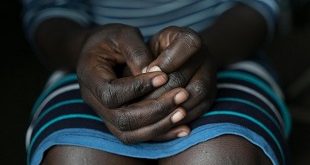
Kampala, Uganda | THE INDEPENDENT | The abduction of four-time presidential candidate and opposition strongman, Dr Kizza Besigye and his political associate, Hajji Obeid Lutale Kamulegeya from Kenya last month has rekindled the role that Uganda’s neighbour has played in the country’s chequered political history.
Besigye and Lutale were kidnapped on November 16 at an apartment in Nairobi, the Kenyan capital where they had gone to meet an associate. The duo was in Nairobi to attend a book launch of a veteran politician Martha Karua. They were driven back to Kampala through the Malaba border and detained at Makindye military barrack.
When the Uganda Radio Network broke the story about the arrest and detention they were paraded before the General Court Martial and charged with four crimes related to being found in illegal possession of firearms. But Besigye’s arrest from Kenya without following the laid down procedures of either extradition or deportation, has brought back the memory of Kenyan authorities assisting their Ugandan counterparts to illegally arrest and extradite political opponents.
This practice was commonplace during the reign of Milton Obote. Among those who feared to be abducted from Kenya where they had sought asylum is none other than President Yoweri Kaguta Museveni’s family.
In her book, My Life’s Journey, Janet Kataaha Museveni, now the first lady writes that the reason they had to relocate to Sweden at the height of her husband’s war against the government of Obote was because she had got actionable intelligence that there was a plan to abduct her and the children back to Uganda to force Museveni out of the bush. “As Obote’s troops lost ground to the NRA, they got more desperate to find some weak point to leverage against my husband. They thought that if they had the family of Yoweri Museveni arrested, and in custody, in Kampala, they would have the right bait to draw Yoweri out and thus weaken the NRA,” Mrs Museveni writes in her book.
To follow through this, the future first lady writes in 1983, people came to her gate and rang the bell which was answered by their house help she only identifies as John. John was bundled in a car that sped off with him. Mrs Museveni was then told that those who had abducted John were looking for her.
Mrs Museveni said at daybreak, she called her friends; Dr Ruhakana Rugunda and Mathew Rukikaire who were also part of the external wing of the NRM to help her look for John. These two, Mrs Museveni writes, informed her that John was not the only Ugandan who had been kidnapped. They said that Barak Kirya who was the leader of the Uganda Freedom Movement had also been abducted and handed over to the Ugandan government at Busia. “I was alarmed and shaken by the news. I knew that our enemies were closing in on us and we had to act immediately,” Mrs Museveni writes.
She adds that she consulted with a friend of hers who was working at the United Nations High Commission for Refugees in Nairobi who also confirmed that the Kenyan government was working closely with the Obote regime to deport political refugees back to Uganda and that her family was the first on the list. “Dr Rugunda and Mr Rukikaire helped me to get John released from prison and narrated to me his harrowing account of the night he was kidnapped from my doorstep,” Mrs Museveni writes. “We said goodbye to a few friends because we could not tell many people about our plans to leave. I had initially tried to get entry to England and I called John Kazzora to see if he would help. He explained that the UK government considered Yoweri Museveni a guerrilla and would not give political asylum to his family for fear of being ostracised by the Obote regime. I hung up the phone as if my world was turning upside down,” Mrs Museveni said.
She was later helped to relocate to Sweden in November 1983 even though she did not think it was a good option she had to leave Kenya immediately for the safety of her family. “It was the first time since leaving Uganda that I did not feel afraid that people knew our name; here it did not matter,” Mrs Museveni writes.
*****
URN
 The Independent Uganda: You get the Truth we Pay the Price
The Independent Uganda: You get the Truth we Pay the Price



